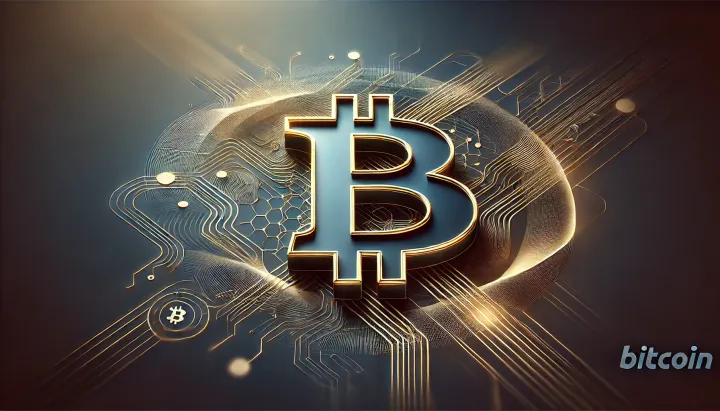Bitcoin as Alien Technology: Exploring Resilience and Future Societal Impact
In the October 1, 2024 Scarce Assets podcast, Tomer Strolight presents an analogy of Bitcoin as a form of artificial life or alien technology. He explores Bitcoin's self-replicating and antifragile nature, its decentralized structure, and its potential to reshape societal and financial systems.

Briefing Notes
My 'briefing notes' summarize the content of podcast episodes; they do not reflect my own views. If you have comments about this briefing note, please leave a comment below (requires signing up for a free blog subscription). Note that some of the podcast episodes I summarize may be sponsored: don't trust, verify, if the information you are looking for is to be used for decision-making.
Summary
The October 1, 2024 episode of the Scarce Assets, Tomer Strolight explores Bitcoin through the lens of artificial life and alien technology. He highlights Bitcoin’s unique characteristics, such as its self-replication, antifragility, and decentralized structure, which enable it to persist without central control. The discussion underscores Bitcoin's potential to reshape financial and societal systems, offering a resilient and peaceful alternative to traditional structures.
Take-Home Messages
- Bitcoin’s self-replicating nature makes it uniquely resilient, functioning without central oversight, akin to biological life.
- Decentralized and antifragile: Bitcoin thrives under attack, making it more robust compared to centralized systems vulnerable to failure.
- Symbiosis with humans: Bitcoin operates in harmony with humanity, relying on human energy while offering economic benefits in return.
- Peaceful disruption: Bitcoin presents a non-violent alternative to traditional financial systems, fostering societal change without coercion.
- Long-term societal impact: Bitcoin’s decentralized financial system could transform governance and reduce dependence on central institutions.
Overview
In this episode, hosts Andy Edstrom and Jesse Myers are joined by Tomer Strolight to discuss Bitcoin’s unique technological and philosophical attributes. Strolight compares Bitcoin to artificial life or alien technology, emphasizing its ability to self-replicate, adapt to changing conditions, and resist central control. These qualities make Bitcoin antifragile, meaning it grows stronger under attack, in contrast to traditional financial systems, which often collapse under similar pressures.
Tomer explores how Bitcoin’s decentralized structure eliminates the need for a governing body, allowing it to function autonomously across a global network. The system’s adaptability to varying energy conditions ensures that Bitcoin remains operational even when external resources fluctuate. This unique resilience, according to Tomer, positions Bitcoin as a revolutionary alternative to traditional systems that require constant management.
The conversation also touches on Bitcoin’s symbiotic relationship with humanity. As individuals and institutions adopt Bitcoin, it provides long-term financial stability while relying on human energy to sustain its network. This symbiosis fosters mutual benefits, positioning Bitcoin as a positive disruptor of centralized financial structures.
Stakeholder Perspectives
- Policymakers: May struggle with regulating Bitcoin’s decentralized nature but could find opportunities to integrate it into financial systems while maintaining societal stability. Regulation must balance innovation with oversight.
- Investors: Bitcoin’s fixed supply and antifragility present an attractive long-term investment. However, its volatility and evolving regulatory environment must be considered when integrating it into portfolios.
- Technology Innovators: Bitcoin’s decentralized architecture can inspire innovations in other industries, particularly those seeking resilience and scalability in distributed systems.
- Energy Sector: Bitcoin mining's energy consumption is a persistent topic of debate, but innovations in renewable energy integration could turn Bitcoin mining into a tool for energy sector growth.
Implications
Bitcoin’s decentralized nature and resilience could lead to important changes in societal structures and governance. Its ability to operate autonomously and resist external pressures makes it an attractive model for decentralized governance. Policymakers will need to consider how to regulate this decentralized system without stifling its potential for innovation and societal benefit.
For investors, Bitcoin represents a long-term hedge against inflationary assets and traditional financial instability. Its fixed supply encourages forward-looking strategies, and its antifragility makes it a potential safe-haven asset during economic crises. Institutional investors may increasingly view Bitcoin as an essential component of diversified portfolios, especially in light of its potential to withstand financial downturns.
Future Outlook
The future of Bitcoin will likely involve increasing integration into global financial systems, but this transition will require governments and institutions to adapt to its decentralized structure. Policymakers will need to strike a balance between regulation and innovation, ensuring that Bitcoin’s potential to empower individuals and promote societal change is realized without destabilizing financial markets.
As adoption grows, Bitcoin’s role in reshaping societal structures will become more pronounced. Its decentralized nature allows individuals to reclaim financial sovereignty, challenging traditional power structures. The question for the future is not if Bitcoin will have an impact but how far-reaching that impact will be, particularly in terms of governance and societal organization.
Information Gaps
- How could Bitcoin’s decentralized structure influence governance models and reduce dependency on central authorities? This question explores the broader implications of Bitcoin’s decentralized model on governance. If Bitcoin can reduce the power of centralized institutions, it could fundamentally change how societies organize and govern themselves.
- What are the societal implications of a shift toward a decentralized financial system like Bitcoin? Investigating the potential societal changes that come with Bitcoin’s decentralized nature could provide insights into how economies and communities might evolve in response to this shift.
- How does Bitcoin’s resilience compare to traditional financial systems during periods of economic crisis? Comparing Bitcoin’s performance with traditional financial systems during crises is critical to understanding its role as a safe-haven asset and how it can be leveraged to mitigate financial instability.
- How can Bitcoin facilitate a peaceful transition away from coercive financial systems dominated by centralized banks? This research explores how Bitcoin’s peaceful disruption of existing financial systems could provide an alternative to violent upheavals historically caused by economic disparity.
- In what ways does Bitcoin's fixed supply influence individual and institutional investment strategies compared to inflationary assets? Understanding the impact of Bitcoin’s fixed supply on long-term investment behavior is essential for institutional investors looking to incorporate Bitcoin into their portfolios.
Broader Implications
Bitcoin and Governance
Bitcoin’s decentralized nature presents an opportunity to fundamentally rethink governance structures. Without the need for central authorities, Bitcoin-based systems could inspire new models of governance where power is distributed and decisions are made collectively, reducing the risks of corruption and authoritarianism. This shift could empower local communities and individuals, promoting greater autonomy and accountability in decision-making processes.
Economic Sovereignty
As Bitcoin adoption grows, individuals and institutions may increasingly reclaim financial sovereignty. With its fixed supply and resistance to manipulation, Bitcoin provides a foundation for stable, long-term wealth preservation, freeing individuals from the instability of inflationary fiat systems. This could lead to a broader rebalancing of economic power, favoring decentralized, grassroots movements over centralized, state-controlled monetary systems.
Innovation in Energy Use
Bitcoin’s impact on energy consumption could catalyze innovations in renewable energy integration and efficiency. Mining operations, currently criticized for their energy use, may be leveraged to stabilize renewable energy grids by absorbing excess supply or incentivizing the development of sustainable energy sources. This dual benefit—securing the Bitcoin network and promoting green energy—could lead to positive environmental and technological outcomes.
Global Financial Inclusion
Bitcoin’s decentralized framework has the potential to promote financial inclusion, particularly in regions underserved by traditional banking systems. Its peer-to-peer nature allows individuals to participate in global economies without relying on intermediaries, which could foster economic development and reduce poverty. By offering secure, accessible financial tools, Bitcoin could empower populations that have historically been excluded from financial markets.
Resilience to Economic Crises
Bitcoin’s antifragile nature positions it as a resilient asset in times of global financial instability. As traditional systems falter under stress, Bitcoin’s decentralized network continues to operate, providing a safe-haven for capital and a hedge against systemic risk. This capacity to endure economic crises without central intervention could enhance its attractiveness as an alternative reserve asset for nations and institutions alike.



Comments ()